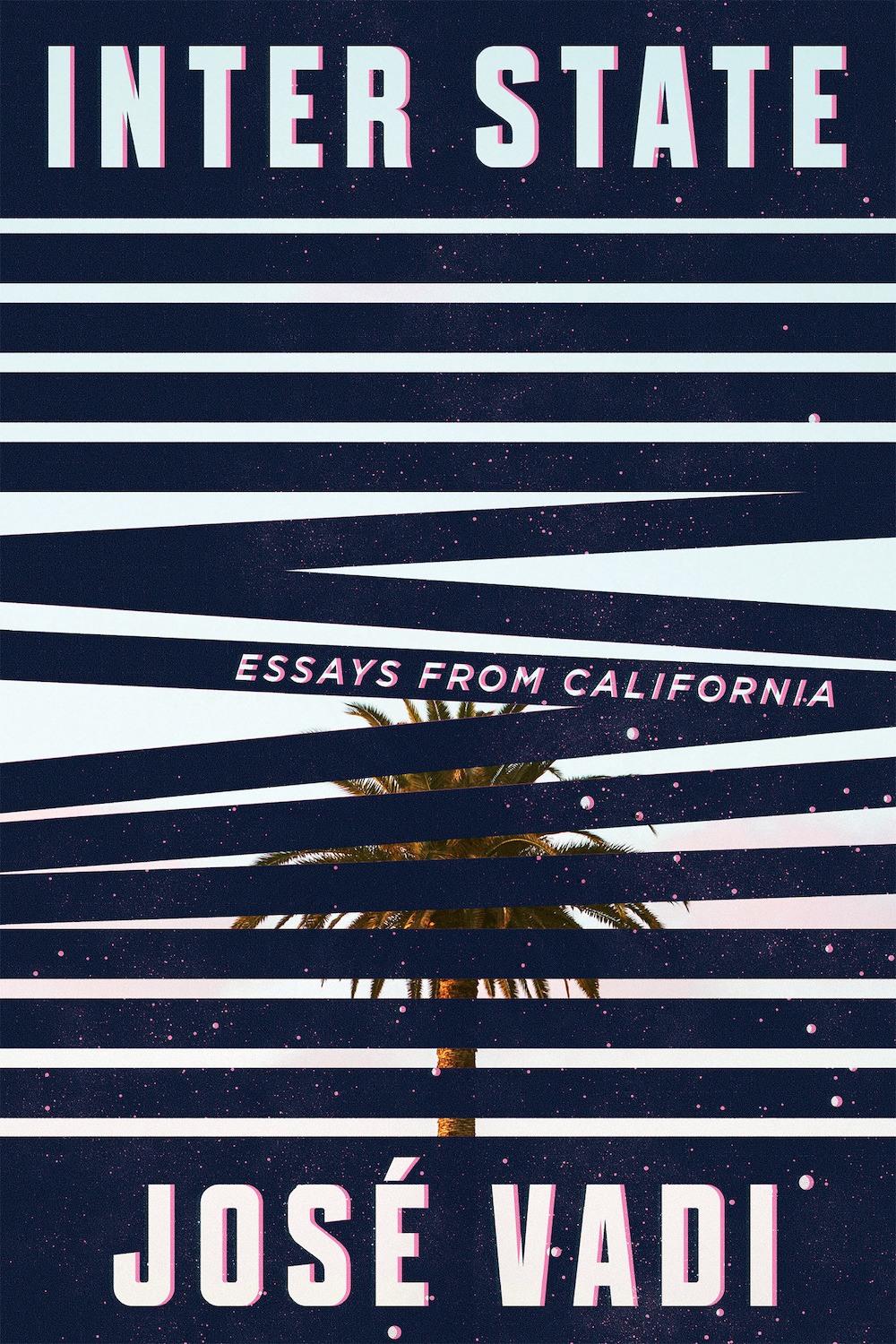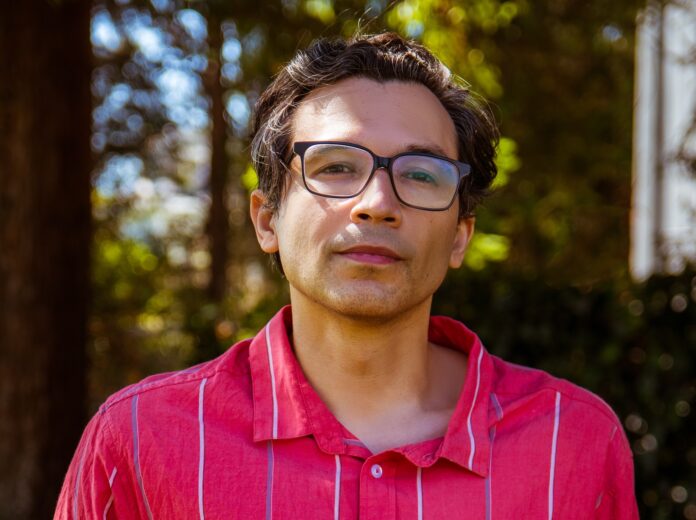Allowed the luxury of reading for a second time through José Vadi’s Inter State, Essays from California (Soft Skull Press), I am struck by how much a book can shape-shift. Altered context and deeper immersion in the Oakland-based playwright-poet and film producer’s debut collection of essays unveils layers only subconsciously noted during the initial reading.
Perhaps it was due to the simple fact that my first experience of Vadi’s loosely linked investigations of his family’s history in California’s Central Valley and the changing scene of life in his beloved but tech-obsessed and rapidly gentrified San Francisco—a terror that bleeds across the bay to Oakland and beyond—was in my tiny condo in the East Bay. The stories are told with innovative syntax, and keenly drawn characters are of his Mexican migrant farmworker grandfather, his abuelo, and other brown-skin ancestors denied the fruits of their labor in the fields of the Central Valley.
Vadi goes on to tell stories of exploitation in labor camps throughout America’s history and the modern era’s too familiar high-tech takeover of San Francisco, with its bar scenes and jukebox selections forever decimated by newcomer patrons, or skateboard meccas subsumed by condo developments and techie HQ’s. Everywhere there are micro-aggressions or outright racist practices and expressivity that exacerbate homelessness, joblessness and disproportionately impact people of color, denying them opportunity to literally or metaphorically “strike California gold.”
The essays, striking authentic chords and satisfying with admirably crafted sentences, left me exhausted and seemed overwhelmingly claustrophobic, dystopian, mournful, at times histrionic and consistently depressing.

The second time, I was in a car, returning to the Bay Area after rushing to visit my parents in New Mexico. My father died just two days after my departure, not entirely unexpectedly. But on this day, he was still hanging onto life, his soul floating tenuously on earth, and I was treasuring memories of what I was soon to know were our last few hours together. As I traveled thorough the state’s Central Valley, passing the tightly landscaped groves of citrus and nut trees with the setting sun casting amber light on farm equipment and across an occasional, rare, fallowed field, the essays nourished.
They read as tributes and testimonials to the victory of everyday folks who work hard, remember, endure, embrace, embody, celebrate… and have no need of an algorithm to access their humanity or to find compassion for people with whom they might differ or perhaps find disagreeable.
Among the book’s highlights: “Getting to Suzy’s,” a marvelous essay on a San Francisco bar that succumbed to COVID-19 and his memories of life as a “15-year-old Brown skateboarder“ in “Spot Check.” Rich with significance, the latter offers a glimpse at Vadi’s childhood growing up in Pomona, his father a Cal Poly professor, his mother a schoolteacher, before coming to Cal to attend UC Berkeley and earning an MFA at Mills College. Urban skateboarding and its culture launch sparkling reminiscences of Los Angeles’ prime skateboard-worthy stairways and school yards, San Francisco’s Hubba Hideout, and other locations, and of scraped knees—and worse, his parent’s wrath following an encounter he had as a teen with three LA cops.
Although a few essays could use a trim to tighten and intensify the tone, all the writing is convincing. California readers will resonate most instantly with references to San Francisco and Los Angeles. Skateboards will know firsthand the “visceral, intrinsic moments when the earth beneath our skateboards shook” that bring to their minds unspoken thoughts of earthquakes and reinforce a camaraderie they enjoy. For people aware of vanishing lifestyles and traditions, and how the digital world marginalizes and makes invisible select people and even entire communities, the essays will hit home. Read them more than once and in changed circumstances, it’s likely you too will find new depth with each encounter.





